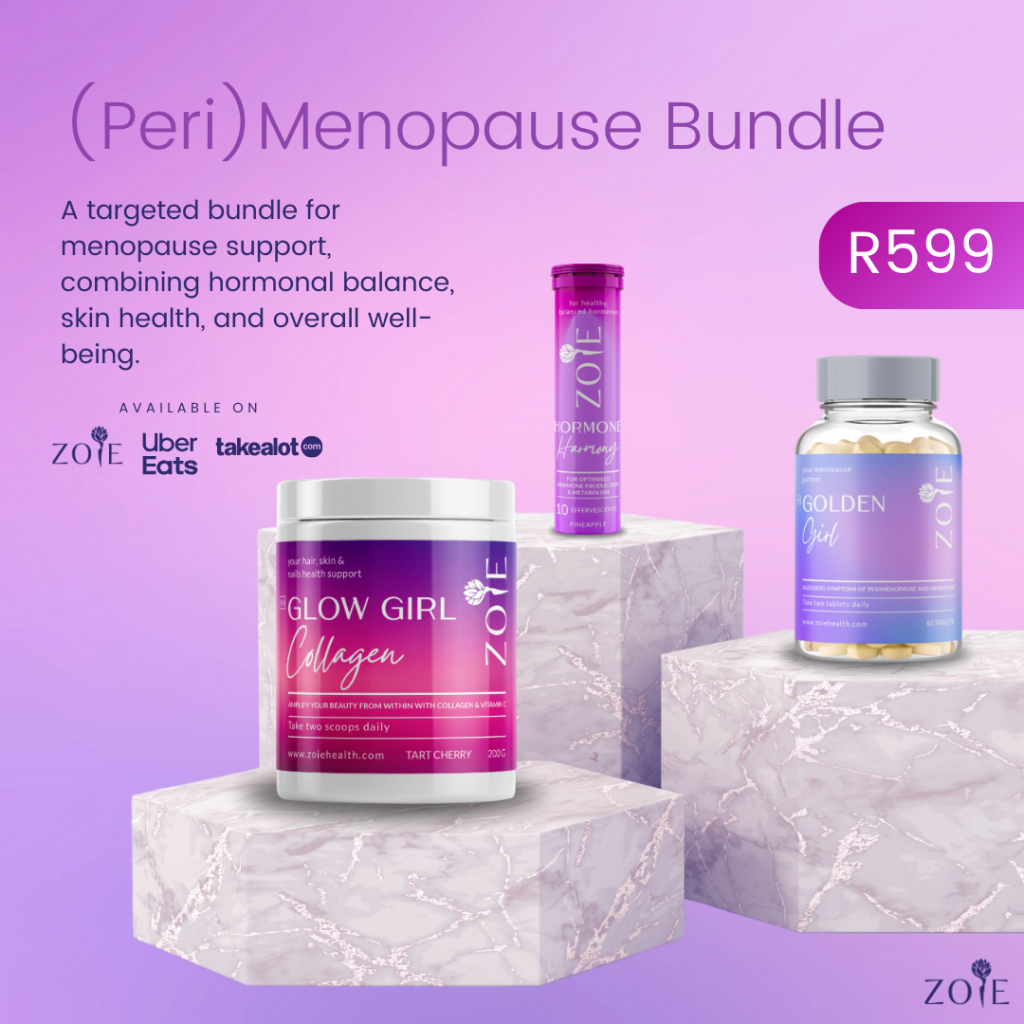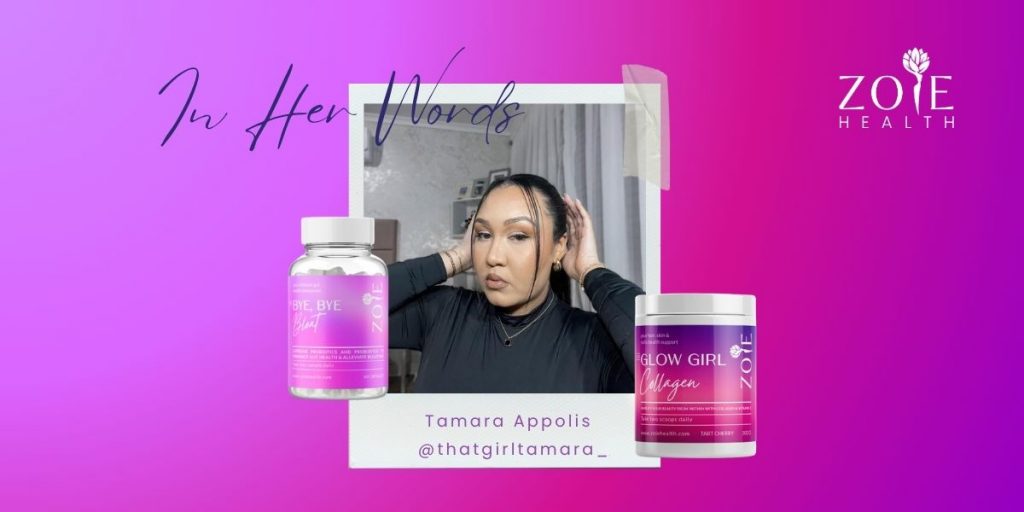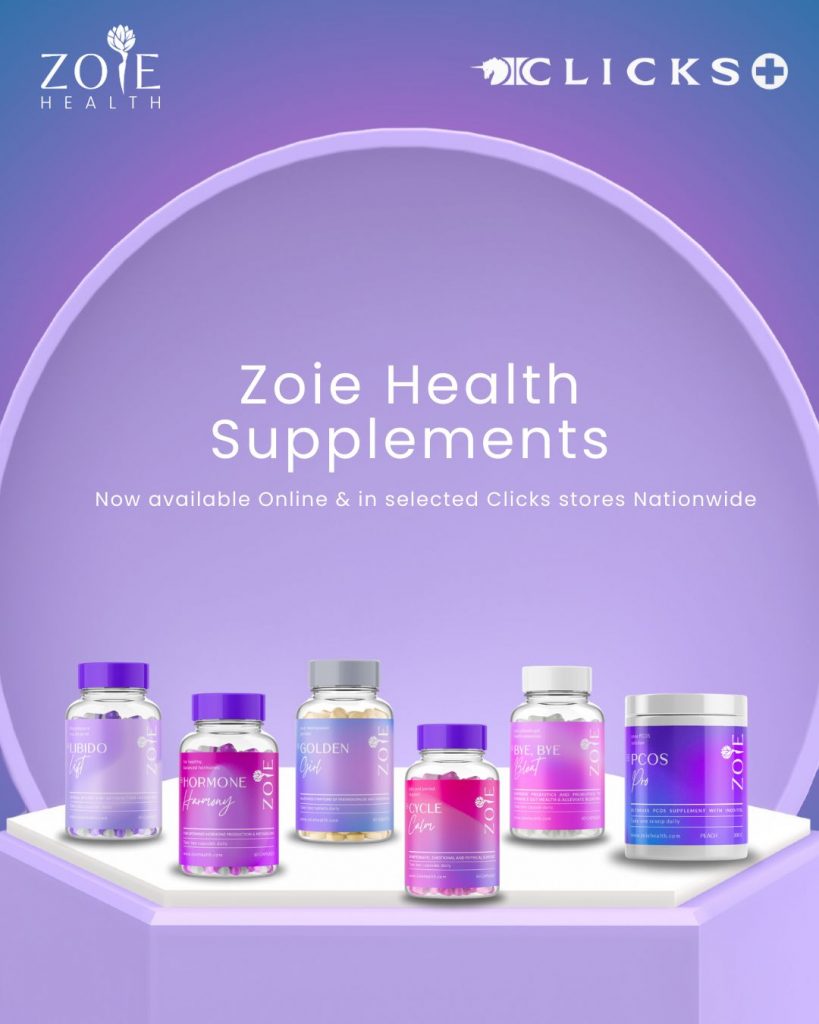By Cornelia Postma
As women navigate the journey of menopause, the changes they experience extend beyond mood swings, hot flashes and energy fluctuations—libido can also be affected. For many, menopause can bring about a decrease in sexual desire, which can be challenging when intimacy plays a vital role in their relationships. However, menopause doesn’t signal the end of a fulfilling sex life. With an understanding of the contributing factors and exploring effective solutions, women can enhance their libido and reclaim their sense of intimacy during and after menopause.

Read more about managing menopause symptoms
Understanding Libido During Menopause
Menopause brings significant hormonal changes, particularly a decline in oestrogen and testosterone, which are crucial for libido and sexual response. As these hormones decrease, many women experience a natural reduction in sexual desire. However, hormonal changes are just part of the equation—emotional, psychological, and physical factors also play significant roles in influencing libido.
Emotional and Physical Influences on Libido
While hormonal shifts are often a primary concern, other factors such as emotional stress, depression, anxiety, and physical health conditions can also impact sexual desire. Addressing these factors with a holistic approach that considers both mental and physical well-being is often the most effective way to navigate these changes. Engaging in stress-reducing activities and seeking emotional support can be as crucial as addressing hormonal imbalances.
Addressing Vaginal Dryness and Pain
Vaginal dryness is a common issue during menopause, often leading to discomfort or pain during intercourse and a natural reduction in sexual interest. Fortunately, effective solutions are available, such as lubricants, vaginal moisturisers, or topical oestrogen treatments. These options can help alleviate discomfort and enhance your overall experience of intimacy.
Arousal and Orgasm Challenges
Aging can lead to reduced blood flow and decreased nerve sensitivity in the pelvic area, making it more challenging to achieve arousal or orgasm. Conditions such as diabetes or heart disease can exacerbate these difficulties. Thankfully, various therapies and products, including clitoral stimulators, vibrators, and pelvic floor exercises, can improve arousal and sexual satisfaction.
Communicating With Your Partner
Maintaining intimacy during menopause requires open and honest communication with your partner. Discussing your evolving needs, desires, and any discomforts can foster mutual understanding and connection. This dialogue is essential for navigating this new phase together and preserving the emotional and physical closeness that defines your relationship.
Self-Confidence and Body Image
Menopause can impact self-confidence and body image, affecting how you feel about yourself sexually. Embracing and appreciating your body during this time is crucial for maintaining a healthy sexual relationship. Rebuilding self-esteem and focusing on self-love can significantly enhance your overall sense of sexual well-being and intimacy with your partner.
Exploring New Forms of Intimacy
If traditional intercourse becomes uncomfortable, exploring alternative forms of intimacy can help maintain a close connection with your partner. Consider experimenting with different types of foreplay, sensual touch, or other forms of sexual expression. The goal is to connect and experience pleasure in ways that feel right for both you and your partner.
The Role of Exercise in Sexual Health
Regular exercise benefits overall health and sexual well-being. Physical activity can improve mood, increase energy levels, and strengthen the pelvic floor, contributing to a more satisfying sex life. Incorporating exercises such as yoga, strength training, or aerobic activities can enhance libido and sexual function.
Supplements for Supporting Your Sexual Health Naturally
In addition to lifestyle changes, some women find that supplements can offer valuable support for libido during menopause. Zoie Health’s Libido Lift is designed to naturally support sexual health with a blend of ingredients that promote healthy blood flow and energy levels. This supplement can help address some of the physical factors contributing to decreased libido, helping you feel more vibrant and connected. Combining Libido Lift with Golden Girl to support your perimenopause and menopause symptoms can make you feel like your best years are still ahead of you.

Read more about Zoie Health supplements
Conclusion
Menopause marks a significant life transition, but it doesn’t have to mean the end of a fulfilling sex life. By addressing both the physical and emotional factors that influence libido, you can reclaim intimacy and continue to enjoy a healthy, satisfying sexual experience. With open communication, self-care, and the support of supplements like Libido Lift and Golden Girl from Zoie Health, you can navigate menopause with confidence and embrace this new chapter with renewed vitality and intimacy.
Every woman’s experience with menopause is unique. Finding what works best for you, whether through lifestyle adjustments, open conversations, or supportive supplements, is key to enhancing your libido and maintaining meaningful connections with your partner. Embrace this phase of life with confidence, knowing that a fulfilling and joyful sexual experience is entirely possible.
About Zoie Health
Zoie Health is at the forefront of women’s wellness, offering quality, affordable, and accessible supplements tailored to the unique health needs of women. With a focus on synergy, Zoie Health’s products are designed to work together, providing your body with the comprehensive support it needs to thrive. With our online Zoie Shop and Pharmacy, our unique virtual consultations, and vast communities of women, we strive to provide good quality healthcare to underserved populations.
Sources:
Johns Hopkins Medicine, Women’s Health Network, Peppy Health, Harvard Health Publishing









